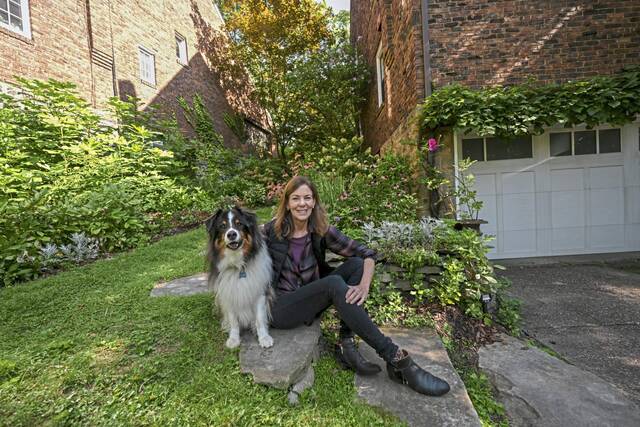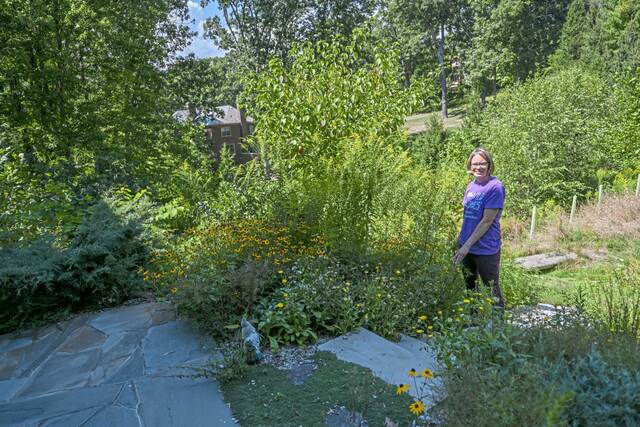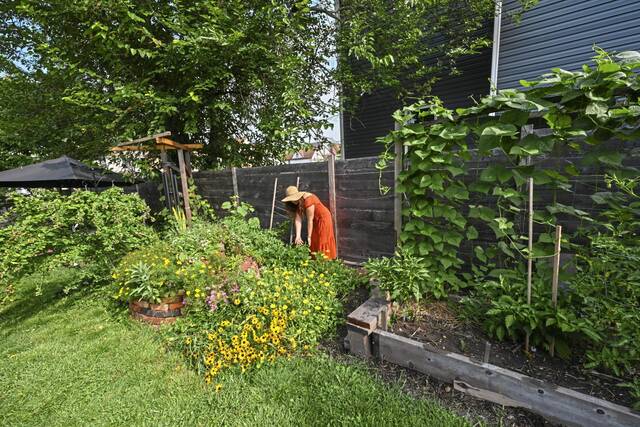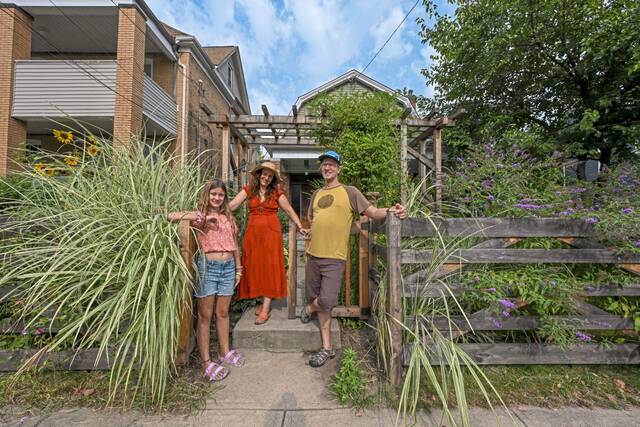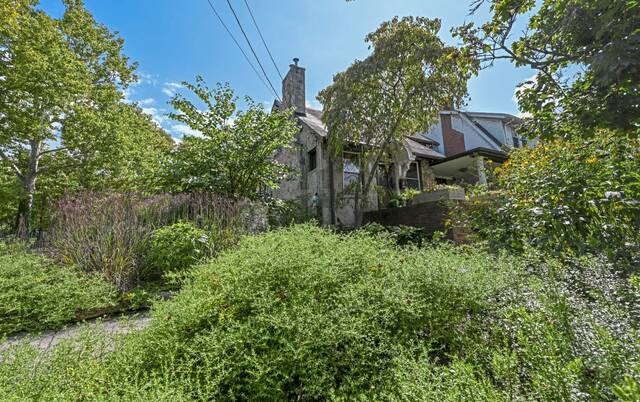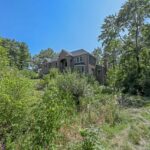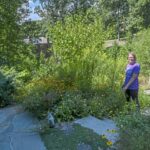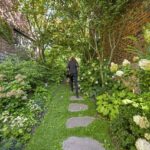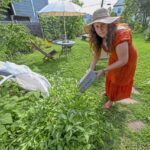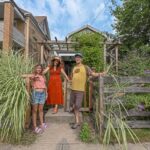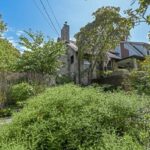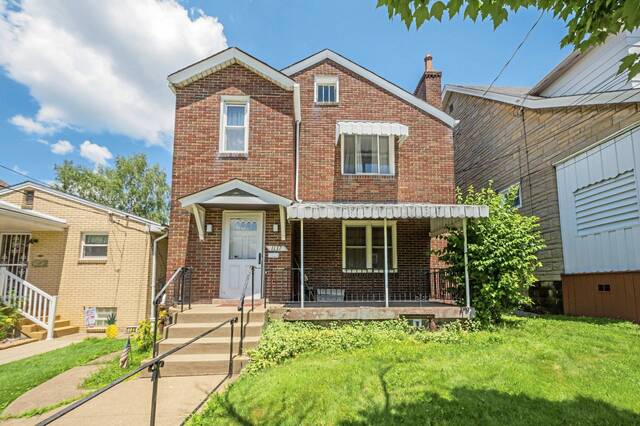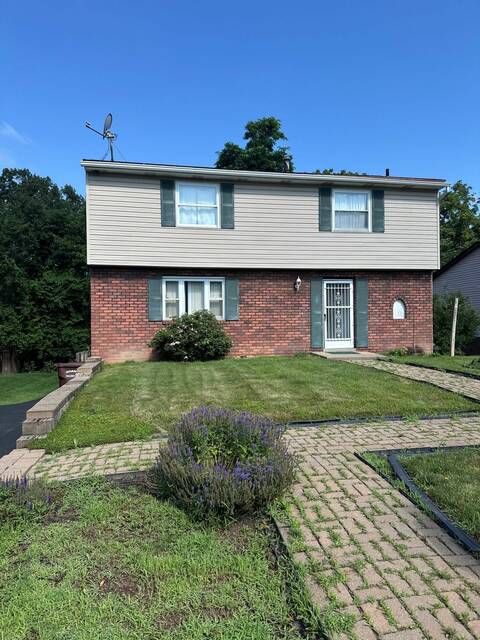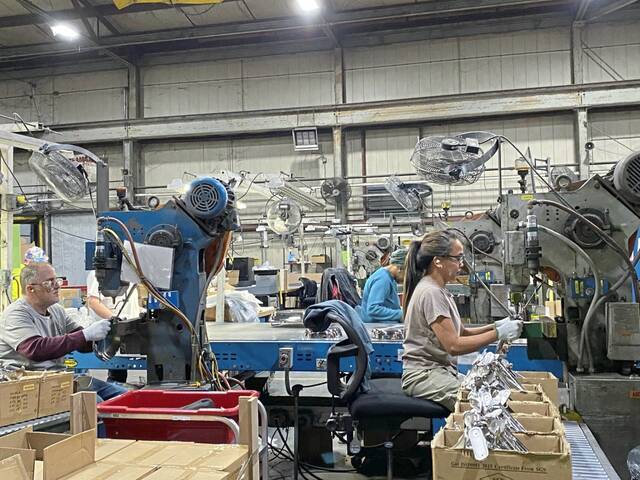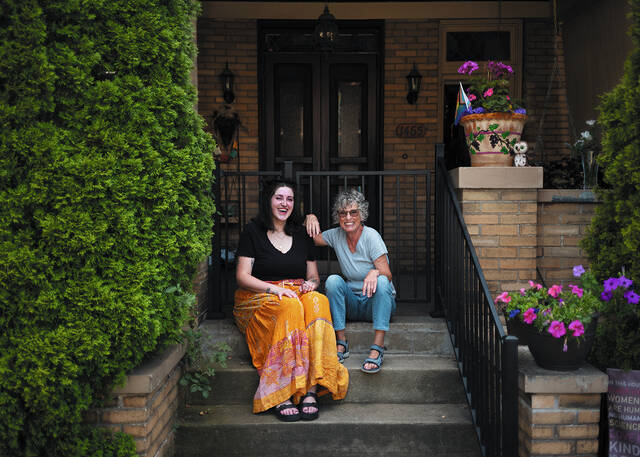The winners of the 2024 Phipps Sustainable Garden Awards are taking the lead in bringing birds and pollinators back to the area. These five gardens embody the principles of sustainable, organic land management taught by Phipps Conservatory and Botanical Gardens. At the same time, they show how beautiful and bountiful sustainability can be.
Each gardener drew inspiration from a love of their community and a desire to improve the environment around them.
Katarina Šumanová Harris
Abundant Edible Gardens
With a vast range of berries, fruits, greens, herbs, flowers and root vegetables, the garden of Katarina Šumanová Harris is bursting with delicious produce. For her, it was a no-brainer to fill green space with edible plants.
“Being born and raised overseas, I grew up surrounded by people who used all their available space for gardening, for both food harvest and beauty,” said Šumanová Harris, a native of Slovakia. Her family grew and prepared many natural products.
Three years ago, she and her husband purchased an abandoned lot adjacent to their property in Swissvale and turned the overgrown 3,300 square feet of space into a delicious Eden. They reused, traded and shared seeds, leftover carpentry materials and concrete to transform the space.
“For us, it was our escape from big-city living and therefore our daily commitment. We have chosen it, and enjoy it,” she said.
Karen Toole
Gardens that Manage Rainwater (Small)
Pittsburgh native Karen Toole has lived all over the country, taking her love of gardening everywhere she went. She even helped to redesign two parks in California to make them better for the community.
Moving back to Pittsburgh in 2014, “I realized that I really didn’t understand our soil and needed better understanding of what the native perennials in our area were,” Toole said.
So she went about educating herself through the Penn State Extension Master Gardener program and seminars on making the area more green. She was surprised to find out how polluted the rivers still were.
In her Highland Park property, she has a rain garden and a huge rain barrel to help control the flow of water on her land. She also owns a flower arranging business. “I have created a garden that I can share with my clients and hopefully inspire others to manage rainwater and create sustainable gardens,” she said.
Melinda Guinn
Gardens that Manage Rainwater (Large)
Melinda Guinn has a family history of gardening. That experience was put to full use after she and her husband bought a 3-acre plot of undeveloped land in Fox Chapel in 2017. “When we bought it, we could actually not see onto the property because the vegetation was growing so densely,” Guinn said.
While their house was being built, they set about wrangling the land back into a haven for native plants and species. This included the borough-required stormwater management system. They chose the option of using plants to accomplish this.
“As the vegetation grows, the roots create infiltration pathways so that water will infiltrate into the ground. Those channels become more and more effective over time, which is really cool,” she said.
The system is low-maintenance and effective. At 80 feet by 30 feet, it can capture up to 25,000 gallons of water during severe weather events.
When they acquired the property, over 25 invasive plant species were identified. Those invasive species are now being actively managed and diminished.
Boaz Frankel
Native Planting and Wildlife Gardens
Boaz Frankel became interested in gardening upon moving to Pittsburgh over five years ago and enrolling in the Master Gardener program at Phipps Conservatory. There, learning about native plants sparked a passion.
“When you plant native plants, you’re creating a wildlife habitat in your yard,” Frankel said. “You’re doing time travel in your backyard because you’re bringing back these creatures, these insects, these butterflies, these birds that have lived here for thousands of years. So it became really exciting to me.”
Trying to break out of the boredom of the Pittsburgh sloped lawn was a big factor, too. He wanted to turn the mostly unused space of his Squirrel Hill property into something useful for other species.
One of his favorite parts of the garden is the natural pond. “As soon as we built that pond … it was like we built this ‘Cheers’ for birds, everybody was stopping in,” he said. “Suddenly robins start building nests right next to it. It became a hub of activity.”
Heather Brady and Glenn Gallacher
Gardens for Personal Retreat
Heather Brady and Glenn Gallacher, along with sons Jack (13) and Finn (8), have turned their Mount Washington outdoor space into a haven for people and pollinators alike.
“We went from a space that was all lawn and it became an urban meadow,” Brady said. “It’s really cool because it was basically an experiment to start. But I have found that when you do plant native, all of these wonderful creatures come to your space.”
They use the space as something of a science experiment for the homeschooled boys, but it’s also become their favorite “room” in the house. It’s filled with bird and butterfly baths, seating spaces and even local artworks.
“It’s a place for observation of wildlife, but also a peaceful area to relax and escape,” she said.



